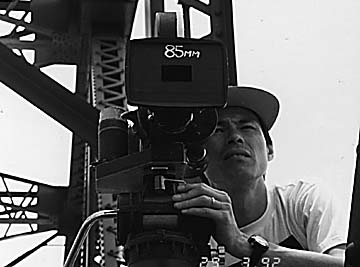
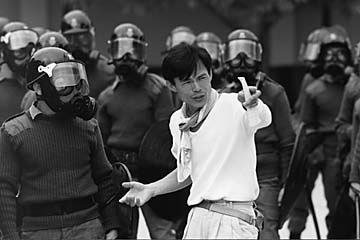
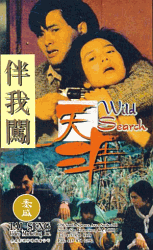
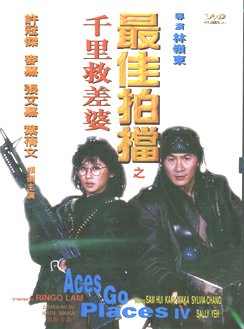
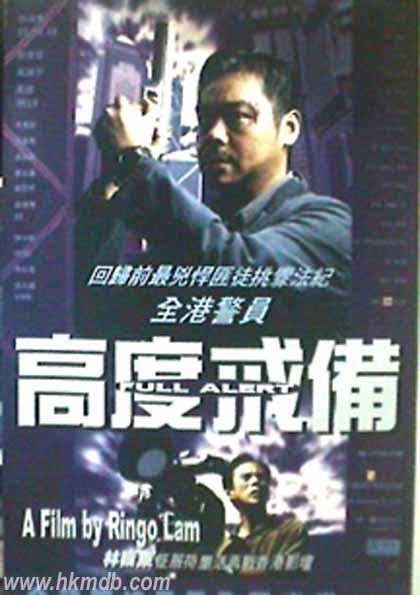
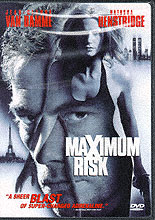
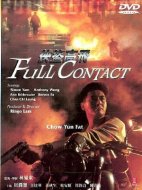
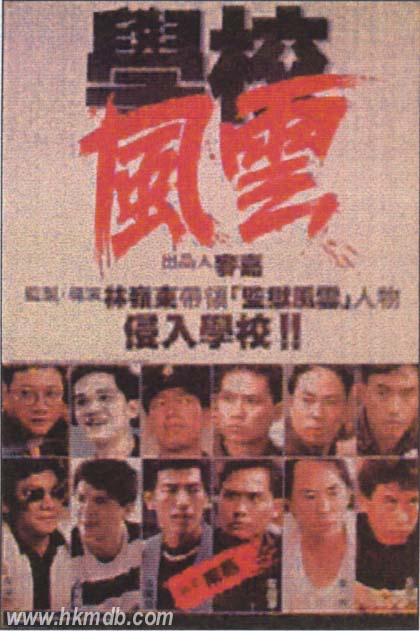

Ringo Lam
One of Hong Kong's most respected film-makers, Ringo Lam was born in 1955. He began his career in 1973 when he entered TVB's (the television division of the Shaw Bros. studio) Actor's Training Programme. One of Lam's classmates was a young actor named Chow Yun-Fat. The two quickly became friends and went out drinking a lot, often getting into trouble with local hoods. One of these incidents, where Chow and Lam were almost forced to drink their own urine, made its way into two John Woo-directed films, A Better Tomorrow (1987) and more graphically in 1990's Bullet in the Head. (For those that do not know, John Woo is also a good friend of Chow, so he heard the "urine" story and wanted to use it in ABT. BITH was originally meant to be a prequel to ABT, so Woo showed the story in more detail in that film).
Lam soon realized that acting was not his forte, and became a production assistant for TVB. Shaw Bros. (and TVB) were notoriously cheap and did not allow much (if any) creativity from its' actors and crews, so in 1978 Lam emigrated to Canada, where he attended York University's film school. He found the film program too slow-moving for his tastes and so after learning all he could, he returned to Hong Kong in 1981. Several other directors, such as Tsui Hark, who had trained at film schools in the West were also working in HK's film industry at this time. They came to be known as "Hong Kong New Wave" directors, as a nod to the European directors (such as Francois Truffaut) from the 1960's that melded American and European film-making techinques to create a new form of cinema. HK New Wave directors such as Lam were less concerned with showing glamorized Manchu-era heroics as shown in the kung-fu films of the '70's as with showing the gritty reality of modern Hong Kong.
Ironically, Lam's first films were anything but gritty. 1983's Esprit D'Amour (which was actually only finished by Lam after the original director left the film unfinished) was typical of the "ghost comedies" popular at the time. Aces Go Places 4 (1986) offered Lam little leeway, since he had to work within the confines of the popular action/comedy series. However, both films turned in a profit at the box office and so Lam was given the "green light" for his first original film, 1987's City on Fire.
City on Fire told the story of an undercover cop (Chow Yun-Fat) who goes in too deep infiltrating a gang of jewel thieves, befriending an older gangster (Danny Lee). It featured Lam's trademark style -- a dark, almost documentary-like feel combined with sudden, explosive doses of extremely bloody violence. Coming off the heels of John Woo's A Better Tomorrow (and sharing the same star), City on Fire was a huge hit and Chow took home a Hong Kong Film Award for his work. The movie also gained some international recognition as well; Quentin Tarantino (though he has never publicly acknowledged it) basically lifted the plot and some of the shots of City on Fire for his debut Reservoir Dogs (1991).
Lam's next film Prison on Fire (1987), which again featured Chow Yun-Fat, was a hit was well. The filming of Prison on Fire almost became a prison for Lam himself. The conditions were squalid to say the least; the film was made in an actual prison, which was still in operation at the time. Lam's tight schedule (Lam made the movie -- from scripting to final edit -- in about three weeks) saw Lam having several temper tantrums and outbursts, as well as imposing tight restrictions on the cast and crew. He gained the nickname "dark-faced god" which he still retains to this day.
Despite the troubles faced on the set of Prison on Fire, Lam seemed to have a successful career going. However, with School on Fire (1988) things began to go downhill. Critics, politicians and, perhaps most importantly, the film's producers all thought the film was too violent and glamorized the Triad (Hong Kong gangster) culture. Audiences, on the other hand, thought the film was too "unglamorous" and dark with not enough action, and stayed away from the movie.
Lam's first attempt at an international production, Undeclared War (1990) was a flop that virtually bankrupted Cinema City studios, and 1991's Touch and Go was also a box-office disappointment despite having the popular Sammo Hung as a star. Lam redeemed himself somewhat at the box office with two films featuring Chow Yun-Fat, Wild Search (1990) and Prison on Fire 2 (1991), but then got into even more trouble with the image-conscious Hong Kong studios by commentating publicly about the Tieannemen Square Massacre.
Lam commented on the controversy in a quote from the book City on Fire: "After the bloodshed everyone is crying and showing so much emotion in the media. Almost every fifteen minutes the television repeats the same news. Everyone is so sad. Okay, I feel sad too. But the thing lasted too long. After two or three weeks I said 'Can we break for a while? Let's have the Dragon Boat Festival [a popular yearly event in Hong Kong].' All of a sudden, everyone came after me. I said 'I'm sorry' and went to Singapore and stayed there for a month. There were threats sent to my company. After that, my movies didn't get a good response [locally]."
It was Lam's good friend Chow Yun-Fat (who had become one if the biggest stars in Hong Kong and carried quite a bit of power with the studios) that would come to his rescue by demanding that Lam direct 1992's Full Contact. The film broke somewhat with Lam's more traditional style, concentrating more on pyrotechnics and stylized bloodshed than relationships (one memorable sequence has a gunfight shown from the bullet's point of view) and seems to have given Lam a "clean slate" with Hong Kong audiences, as well as gaining a large international cult fanbase. Full Contact was quite successful in Asia, and allowed Lam to get a huge (by Hong Kong standards) budget for Burning Paradise (1994). The film was a hit with critics, but failed to make up its US$ 4 million budget and once again, Lam was in hot water with the studios. His actions during the filming of 1995's The Adventurers (which included publicly criticizing star Andy Lau, who, by some accounts, refused to listen to Lam's direction) didn't help matters any.
So when Lam received an offer in 1996 from the US studio Columbia Pictures to direct Maximum Risk, he accepted. Things didn't go any better for Lam in America. From the start, he didn't get along with star Jean-Claude Van Damme, saying he "couldn't act for sh*t." The film also went over poorly with test audiences and was taken out of Lam's hands, then re-edited by the studio. Lam returned to Hong Kong in disgust. It was at this -- one of the darkest points in his career -- that Lam produced one of his finest movies, 1997's Full Alert, which cannily mixed in his older, more gritty style along with some "Hollywood" touches, such as rapid-fire editing. The film was a huge hit in Hong Kong and once again Lam had redeemed himself in front of his peers.
Even though his latest film, The Suspect (1998) was not that successful, Lam seems determined to stick it out in Hong Kong (as well as Hollywood, as evidenced with his continued endeavors with Jean-Claude Van Damme such as 2000's Replicant and The Monk) and continue to produce challenging, stylistic and entertaining movies for years to come.